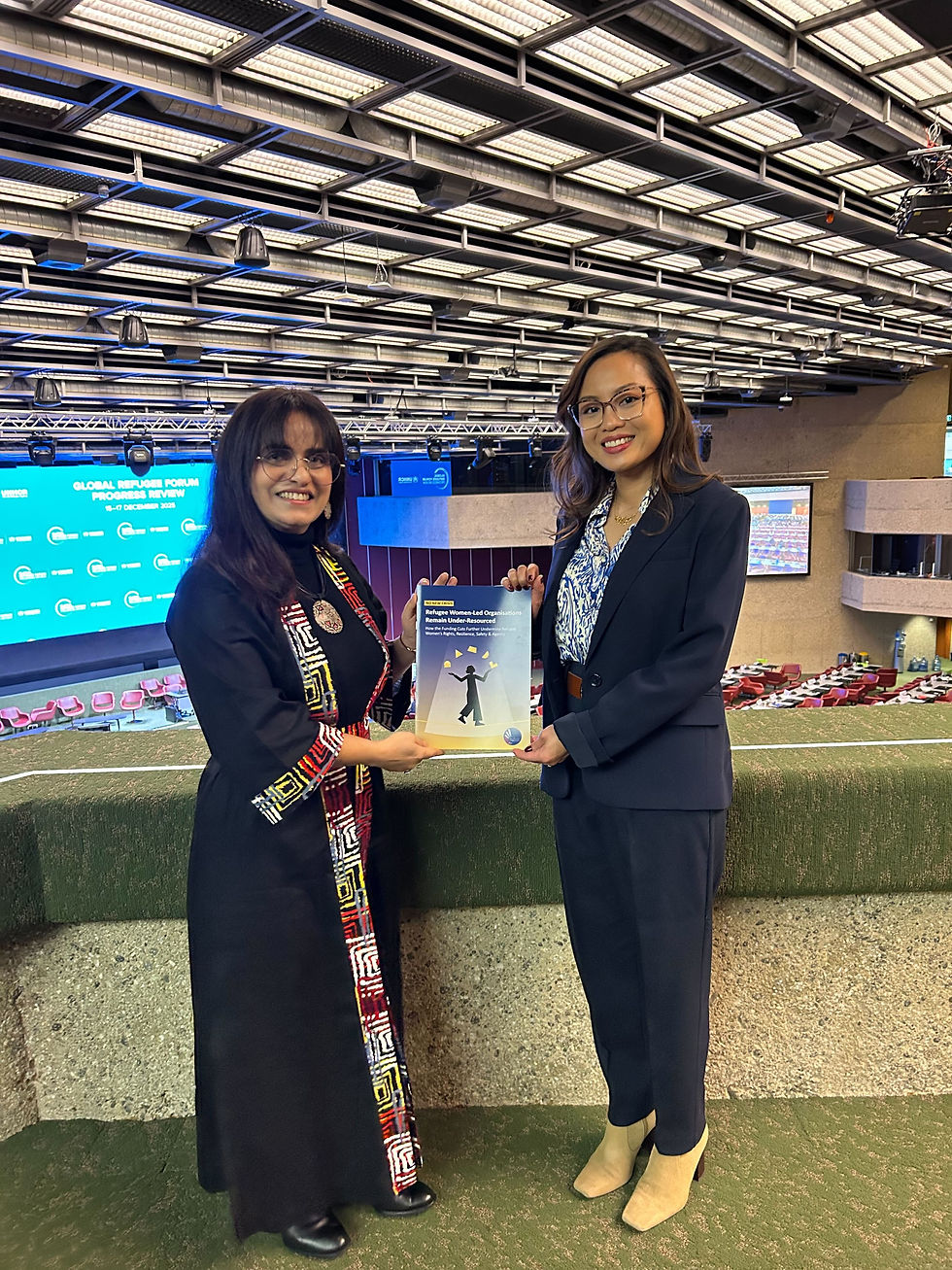Climate Finance and Just Transition: on Community Access and Participation
- Communication NWC
- Nov 24, 2025
- 3 min read
Written by Wren Heath, NWC Volunteer Researcher
On 14 August 2025, New Women Connectors hosted a webinar called 'From Climate Finance to Community Action: Transforming Knowledge' about the role of climate finance in supporting communities most affected by climate change. The conversation featured two guests from the Green Climate Fund (GCF), Stephanie Speck and Eleni Kyrou. Stephanie’s work focuses on the intersection of strategy, impact and vulnerability; connecting with local communities for local climate solutions, and working in (post-)conflict regions. Eleni’s work centers international development, disability inclusion, and gender-informed practices at GCF. The conversation was facilitated by Anila Noor, founder of NWC.
The conversation addressed critical challenges in climate finance delivery, focusing on the Green Climate Fund (GCF) and the imperative to ensure meaningful participation of marginalized communities, particularly women and displaced populations, in climate action and finance mechanisms.
Climate Finance Overview
The GCF, a key financing mechanism of the 2015 Paris Agreement, delivers $100 billion USD annually to developing countries, equally distributed between mitigation and adaptation efforts. Operating through implementing partners rather than direct implementation, the fund channels resources from global tax revenues to governments and private sector entities.
Just Transition Framework
A just transition centers justice and human rights in climate action, recognizing that climate impacts are inequitably distributed—those most affected typically contribute least to the crisis. The principle emphasizes enabling communities to grow and prosper without causing harm, ensuring that energy transitions are staged and inclusive. Core to this approach is placing people's capacity to afford transitions at the center of all initiatives, supported by social protection programs and subsidized financial instruments.
Critical Gaps in Implementation
Multiple layers of bureaucracy and intermediary organizations create significant obstacles to direct community access. Climate solutions are frequently developed without firsthand knowledge of local issues and needs, resulting in misaligned interventions.
The GCF has committed only $186 million USD to displacement-related initiatives—an amount acknowledged as insufficient. Unequal power relationships between displaced populations and host communities, combined with tensions between state policy and local reception, compound access challenges. While the GCF maintains a climate focus, this can create misalignments with humanitarian needs.
Large grant structures systematically exclude smaller local actors and indigenous communities, despite stated intentions to support direct access. The fund acknowledges ongoing challenges in creating direct financial pathways for these communities.
Recommendations for Enhanced Participation
Expand funding beyond alert systems to include comprehensive support infrastructure—safe shelters for women and children, cash transfer systems independent of documentation requirements, and livelihood transition strategies.
Scale successful models such as Save the Children's Pacific country programs that effectively reach local communities.
Move beyond framing women solely as vulnerable recipients to recognize and support their agency as change agents.
Prioritize funding pathways for non-profits and civil society organizations that can better serve local communities.
Support representatives from marginalized communities in navigating UN processes and climate finance mechanisms.
Conclusion
Genuine partnership requires moving beyond extractive participation models to establish equitable relationships built on trust and resource sharing. The GCF acknowledges significant blind spots and limitations that require open dialogue and realistic expectations about what the fund can deliver. Achieving truly inclusive climate finance demands systemic reforms to financial architecture, enhanced direct access mechanisms, and recognition of community agency in designing and implementing climate solutions.
A recording to the full webinar is available on our YouTube channel.
This webinar took place within the framework of our project 'Together We Lead, Together We Nurture: Our Earth, Our Europe, Our Future'. This project is co-funded by the European Union.





_edited.png)

Comments